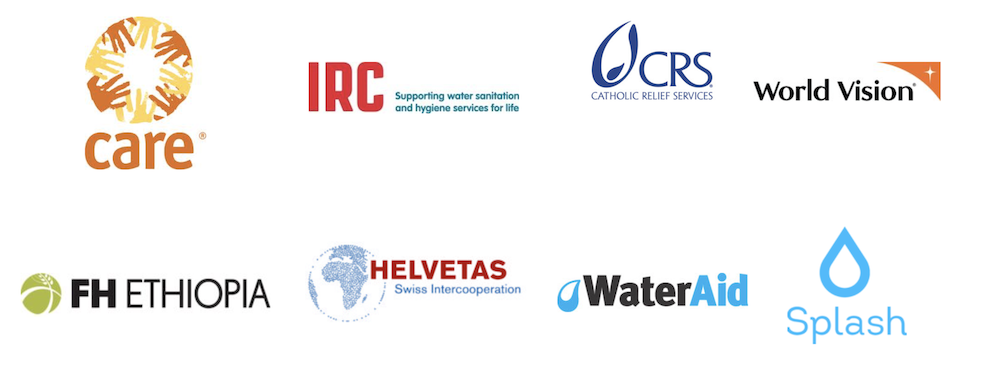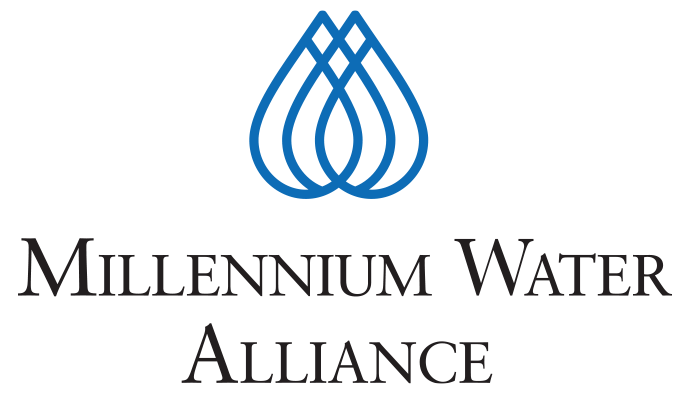The Millennium Water Alliance – Ethiopia Program (MWA – EP) has improved WASH access and local capacity in Ethiopia since 2004, reaching more than 1.5 million people and a large number of schools and healthcare facilities. Since its first Ethiopia program, MWA and members have worked with the government to support technical and MEL development, the production of self-supply guidelines, water quality studies, woreda water point functionality, learning forums, and more.
The current program, a one-year bridge program beginning in December 2017, includes seven MWA member organizations—CARE, Catholic Relief Services, FH Ethiopia, HELVETAS Swiss Intercooperation, IRC, WaterAid, and World Vision—and local and international partners.
Funded by a major grant from the Conrad N. Hilton Foundation, the MWA Ethiopia Bridge Program works in the Amhara region to support detailed woreda information assessment, district master planning towards long-term achievement of SDGs, multi-year program and MEL development, partnership enhancement, and water quality and access implementation work. The bridge program builds a strong foundation to strengthen outcome achievements during a future multi-year, systems-based program that will work toward the long-term Sustainable Development Goal (SDG) of safe, sustainable access to water across entire districts by 2030.
Beyond a business-as-usual WASH approach, the bridge program engages in district master planning with the leadership of local government. District master planning involves collecting data from all aspects of WASH systems, including financing, local supplies provided by the private sector, micro-finance options, government leadership, community capacity, and monitoring. This data is then used to inform evidence-based planning to help future programs best achieve SDGs.
Major activities from the bridge program include:
- The installation of Dispensers for Safe Water in collaboration with Evidence Action;
- Self-supply acceleration activities to support new or upgraded household self-supply wells;
- Sensitization on sanitation and hygiene at community and institutional level;
- Assessments across three woredas, including an in-depth assessment of WASH in Health Care Facilities led by the Centers for Disease Control and Prevention;
- Learning and planning for improvements on WASH in schools, in collaboration with Splash;
- Capacity-building for personnel at district and community levels including Health Extension Workers and Woreda WASH Teams; and
- Partnership and program development for the upcoming multi-year program aligned with government priorities.
The bridge program also operates under the CNHF Safe Water Strategy and the Millennium Water Alliance Global Strategy, both of which prioritize a district focus to seek new and innovative ways of achieving full WASH coverage.
Program Partners


